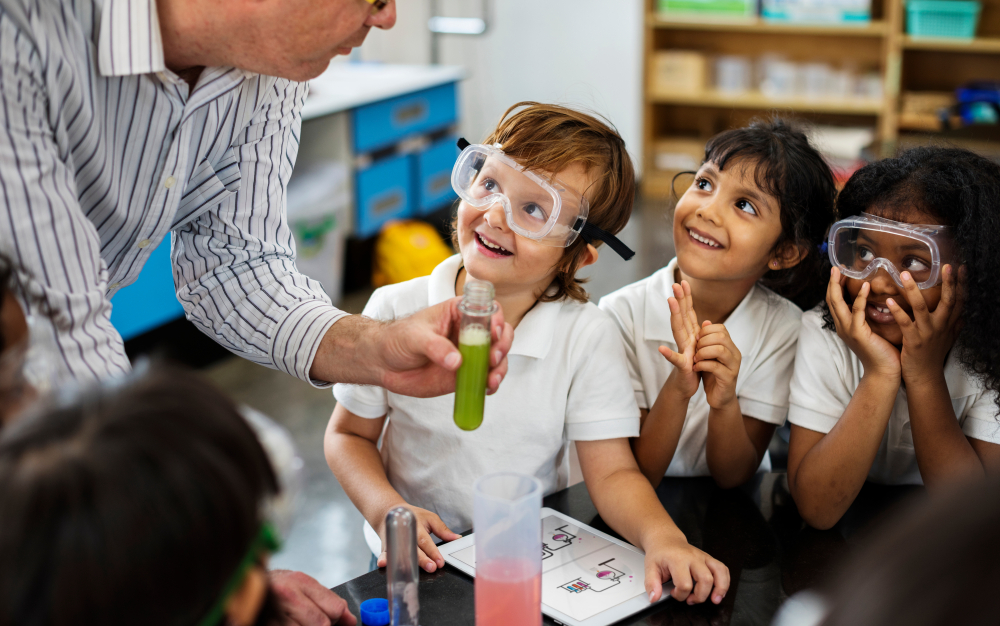A recent article from the Harvard Graduate School of Education delves into the intricate processes of learning science and offers critical insights for educators looking to strengthen student engagement and comprehension in the subject. With an emphasis on active participation and critical thinking, the article provides actionable strategies for K-12 teachers aiming to enhance their science instruction.
Key findings from the article highlight that effective science learning transcends rote memorisation, requiring students to engage in scientific practices and think critically about concepts. The article identifies three foundational elements crucial to the learning process:
- Active Engagement: Students retain knowledge more effectively when they are actively involved in the learning process. Educators are encouraged to implement hands-on experiments, collaborative group projects, and discussions that allow students to explore scientific concepts in depth.
Specific Actions for Students: Engage in laboratory experiments that allow for exploration and inquiry. Participate in science fairs or community projects that require teamwork and experimentation to solve real-world problems. Utilise inquiry-based learning approaches where students formulate questions and seek answers through investigation. - Connecting Concepts: The article emphasises the importance of helping students relate new information to their existing knowledge. This can be facilitated through methods that encourage inquiry-based learning and concept mapping.
Specific Actions for Students: Make concept maps that visually represent the relationships between different scientific ideas. When learning new topics, students should be encouraged to draw parallels to previously learned concepts, creating a web of knowledge that enhances retention and understanding. - Developing a Scientific Mindset: Nurturing a scientific mindset is essential for students to thrive in science learning. This mindset includes fostering curiosity, persistence, and the ability to view challenges as opportunities for growth rather than obstacles.
Specific Actions for Students: Cultivate curiosity by asking open-ended questions about everyday phenomena and conducting small experiments at home. Embrace failures in experiments as learning opportunities, reflecting on what went wrong and how to improve in future attempts. Participate in discussions that challenge their thinking and encourage them to defend their hypotheses.

Additionally, the article advocates for the integration of technology and real-world applications into science lessons. This can further ignite student interest and deepen their understanding of complex concepts.
- Specific Actions for Students: Use simulations and online resources to visualise scientific processes, such as ecosystems or chemical reactions. Engage with data analysis tools that allow students to interpret real scientific data, encouraging them to draw conclusions based on evidence.
For educators, these insights underscore the necessity of crafting dynamic and interactive science curricula that not only focus on content knowledge but also foster critical thinking and problem-solving skills. By creating an environment that encourages active participation and meaningful inquiry, teachers can better prepare students for future scientific endeavours and instil a lifelong passion for science.
For more detailed insights and recommendations, read the full article here.
Science and Lab Equipment Supplies that may be of interest:
Get a special discount by quoting code AISLMALL during CHECKOUT.
Philip Harris – Laboratory Supplies

Philip Harris Ltd was a British laboratory supply company which became a major supplier of equipment for school science. The brand name is now owned by Findel plc. The company was originally based in Digbeth, Birmingham, and was started by Thomas Ellis, a surgeon, in 1817.
S+B USA STEM Spaces – Science and STEM furniture

For over 50 years, S+B has been designing, manufacturing and supplying Science and STEM lab facilities. We provide modern, innovative furniture solutions to make your vision a reality.
Shanghai Nori Laboratory Equipment

Nori offers laboratory consulting, planning and design, decoration, HVAC, gas supply, bioengineering, furniture, intelligence, constant temperature and humidity, clean room and after-sales service, that aligns with international standards. With over a decade of expertise, Nori stands as a trusted name in comprehensive laboratory construction and solutions, meeting the requirements of both international and leading domestic companies.








